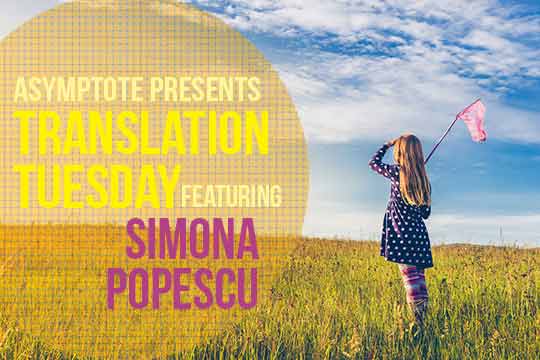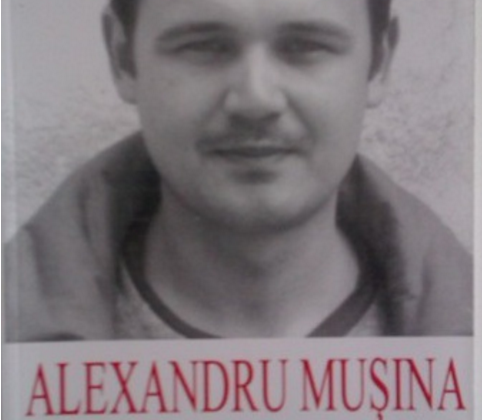Today’s Translation Tuesday is brought to you by MARGENTO, Asymptote Editor-at-Large for Romania and Moldova. The lyrical excerpts from Romanian essayist and poet Simona Popescu’s writing explore a mood—memories of the nineties related as if at a remove, stating plainly what the narrator saw, while encapsulating the myriad complications simmering beneath the still surface of the narration.
“I confess I do not believe in time. I like
to fold my magic carpet, after use,
in such a way as to superimpose one part
of the pattern upon another.”
—Vladimir Nabokov, Speak, Memory
“Then everything regroups as if in a hot fog
where things recover among the obscure
plantations of the accidental.”
—Gellu Naum, The Blue Riverbank
“I have no idea of time, and I don’t wish to have”
—Wislawa Szymborska, On the Tower of Babel
In the house of my childhood, somewhere in my parents’ mixed up bookcase, leaning on a couple of books stood a black teddy bear in a white sash ribbon with some red lettering on it saying Grüsse aus Berlin. On other shelves there were other “souvenirs” from Abroad. For instance, a wooden cylinder with a lid in the shape of a Russian church dome, with a rose and the word “Bulgaria” burnt onto it. Inside was a vial of Bulgarian rose perfume. My folks never traveled Abroad. In fact, nobody in our little town ever traveled Abroad. Not even the Saxons and the Hungarians who, judging by the language they spoke, had to have another country somewhere, if push came to shove, right? You have as many countries as the languages you speak, the saying went. The Hungarians and the Saxons were therefore half foreign. But even so, even they never got Abroad—it was only the old people that sometimes went, but they always returned. Nobody needed them and they didn’t need anybody or anything except a quiet life in their homes. Only old people returned. They and the migrating birds.
It was me who had brought the rose perfume home. I was 12 when I went, without my parents, on a trip—well, yes—Abroad. I don’t recall much. It was I think in spring, there was I think a crisp sun, I was on a terrace I think by the sea, somewhere on a cliff, there were breakers I think in front of me, not very close though, I think I never went down the stairs to dip my toes in the sea. In the “vision” conjured by the word “Bulgaria” in which I’m a child a milky light and a bluish expanse approach me. And I’m all alone there, for a second, my back turned on everybody else. And I can hear a roaring wind. (I am back there anytime I want. I’m 12 and then—as I keep adding now—44. I hold an invisible butterfly net in my hand and collect images with it.) READ MORE…


